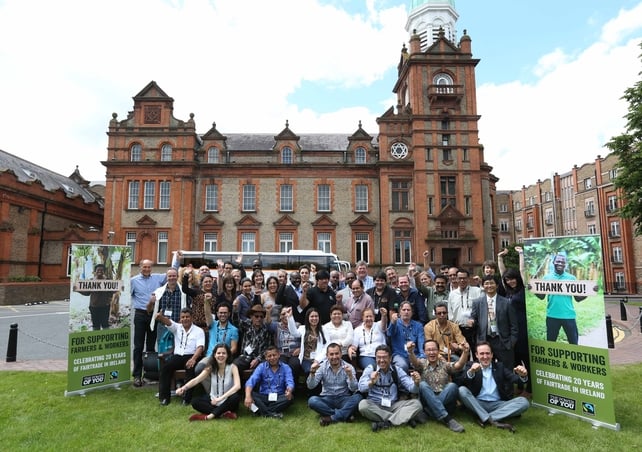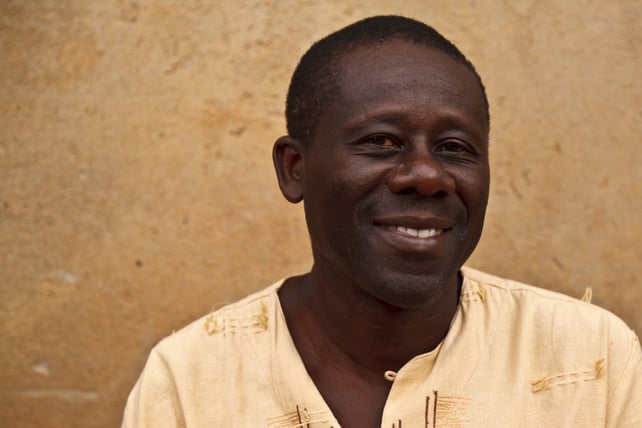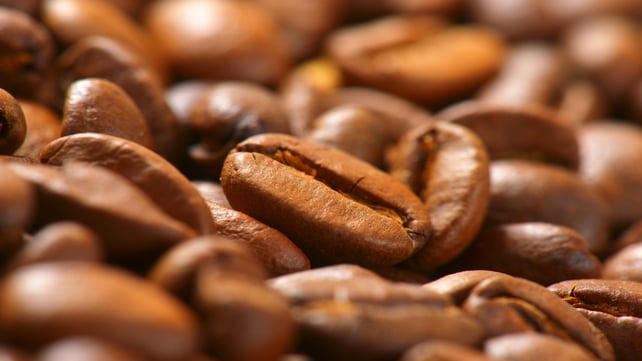The theme of this year's event is sustainability of the coffee industry and we went along to the RDS to meet many of the coffee makers battling it out for consumers attention. There is plenty of love to go around: The Irish love coffee with over €96 million spent on the (other) black stuff each year but only 9% of that is Fairtrade - not bad by international standards but a lot of room for improvement.
We spoke to Fairtrade International coffee makers including John Nuwagaba from Uganda and Bijumon Kurien, MASS Cooperative, Kerala, India. They, along with Fairtrade Ireland's Executive Director Peter Gaynor, explained where our coffee comes from and what exactly Fairtrade and the coffee industry means for the people who make it.
"Most of the coffee we drink in Ireland comes from countries in Central and South America", Peter explained.
"They include Nicaragua, Honduras, Guatemala, El Salvador, Brazil, Colombia, Peru. We also drink some coffee from Uganda and Kenya and India."

How is coffee made?
"Coffee beans start to grow as coffee cherries. Coffee cherries ripen unevenly, so the harvest is a labour-intensive process with multiple visits to the same coffee bush during the harvest season.
"After they ripen, red cherries are picked, they are washed, dried, and hulled. This yields green coffee beans, which are then roasted and ground to make coffee."
Has Coffee overtaken Tea Sales?
Gaynor has some interesting news: "According to Euromonitor 2015 (released February 2016) coffee continued to witness a surge in popularity among Irish consumers in 2015.
Retail value grew by 18%, reaching sales of €96.5 million. Sales of fresh coffee continued to drive growth, as overall sales of instant coffee continued to decline. Tea in Ireland saw value growth of 3% in 2015, reaching of-trade value sales of €130 million. Sales of tea continued to grow slightly in spite of the ever-encroaching threat from coffee and other hot drinks.
What Good does Fairtrade and the Coffee Industry Do?
"Around 125 million people worldwide depend on coffee for their livelihoods," John Nuwagaba from Uganda's Ankole Coffee Co-op explained.
"Coffee is the most valuable and widely traded tropical agricultural product and 25 million smallholder farmers produce 80% of the world’s coffee. But many of them fail to earn a reliable living from coffee.
"The global price of coffee tends to rise and fall like a rollercoaster. This volatility is due to a number of factors which can include bouts of disease – such asthe recent leaf rust epidemic in Central America – unpredictable weather patterns, large harvests from major origins (like Brazil, Vietnam or Colombia) or wide-ranging speculation in future markets.
Fairtrade aims to give farmers stability in this unpredictable market environment by offering a Fairtrade Minimum Price, which helps protect them from volatile price drops.
"If the market price exceeds the Fairtrade Minimum Price, farmers negotiate with buyers to sell at a higher price based on quality and other factors. In addition, coffee farmers receive a Fairtrade Premium of 20 cents per pound for conventional coffee and additional 30 cents per pound if produced organically. At least five cents per pound of the Fairtrade Premium is dedicated to improved production or quality.
Fairtrade focuses its efforts on organizing small-scale farmers who produce 70-80 percent of the world’s coffee. By helping smallholder farmers to organise themselves into small producer organisations – such as cooperatives and associations – farmers can negotiate better terms of trade and Fairtrade can have a larger impact.
Is the Important Role of Women Recognised?
Around 70% of agricultural work is done by women, according to FAO figures. Yet women’s crucial role in farming is often unrecognised, unpaid and invisible.

Nuwagaba added: "Men own most of the land and take responsibility for transporting crops to market, and subsequently they retain much of the control over household income.
"Recognising and investing in women farmers is good for development. Investing in programmes targeted at women smallholders can have a positive impact on education, health and food security.
"At Fairtrade many women are catalysts for change in many of their communities. One in four Fairtrade producers is a woman, and on plantations this figure is even higher, with women making up 47 percent of hired workers in Fairtrade. Women are active in all aspects of Fairtrade, from farming to processing, and in some cases, management of producer organisations and cooperatives."
Coffee Costs?
Coffee is well known for being a boom and bust commodity.
Bijumon Kurien, MASS Cooperative, Kerala, India added: "Global coffee production varies from year to year according to weather conditions, disease and other factors, resulting in a coffee market that is inherently unstable and characterised by wide fluctuations in price.
This price volatility has significant consequences for those who depend on coffee for their livelihood, making it difficult for growers to predict their income for the coming season and budget for their household and farming needs.
"The coffee supply chain is complex as beans pass hands through growers, traders, processors, exporters, roaster, retailers and finally the consumer.
Most farmers have little idea of where their coffee goes or what price it ends up selling for.
The more lucrative export of green coffee – beans that have been processed ready for export and roasting – is only an option for farmers if they can form co-operatives, purchase processing equipment and organise export or hire a contractor to carry out these services."

.
World of Coffee takes place from June 23 to June 25 from 10am - 5pm at the Royal Dublin Society.

